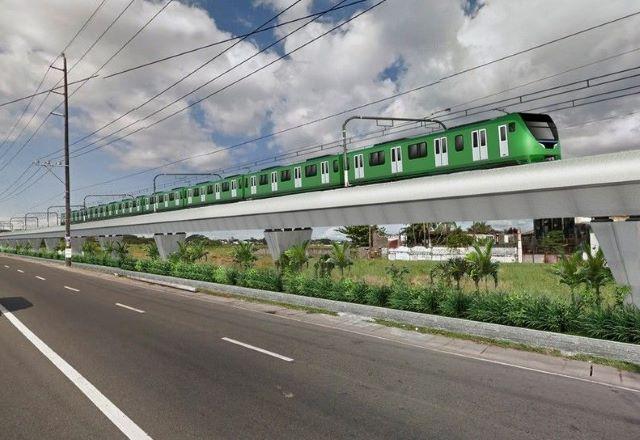PNR Malolos-Clark segment generated 7,000 jobs —DOTr

The Department of Transportation (DOTr) said Saturday that the construction of the Philippine National Railways’ Clark Phase 2 project or the Malolos, Bulacan to Clark, Pampanga line opened thousands of job opportunities.
In a statement, Transportation Secretary Arthur Tugade said the project will generate direct and indirect employment opportunities for locals, overseas Filipino workers (OFWs), and transport sector workers hit by the COVID-19 pandemic, noting that at least 7,000 direct jobs have been opened for grabs as the construction of the projects progresses.
“I have been stressing this and I want to make sure that under the Build, Build, Build program, we shall prioritize the employment of former OFWs and transport workers to guarantee the inclusivity of this project,” Tugade said.
The PNR Clark Phase 2 forms part of the massive 147-kilometer North-South Commuter Railway (NSCR) project -- which will have 35 stations, and shall operate 464 train cars, with 58 eight-car train sets configuration.
The NSCR line stretches from Laguna to Clark in Pampanga.
In particular, the 54-kilometer PNR Clark Phase 2 or Malolos-Clark line will feature the country’s first airport railway express service.
As of July 2021, PNR Clark Phase 2 recorded an overall progress rate of 32%, while PNR Clark Phase 1 or the Tutuban to Malolos segment is at a 48%.
Apart from the 7,000 direct jobs that opened during the construction phase of the PNR Clark Phase 2, around 3,000 more job opportunities will be generated once the project becomes operational, the DOTr said.
Moreover, it said that for the whole NSCR line, over 25,000 direct job opportunities will be generated during its construction, while 10,000 jobs are expected to provide employment to the people.
The NSCR project will be co-financed by the Japan International Cooperation Agency (JICA) and Asian Development Bank (ADB).
In his message, Japanese Ambassador to the Philippines Koshikawa Kazuhiko stressed the important benefits of the NSCR to Filipinos, including the improvement of connectivity surrounding Metro Manila, and the convenience it will provide to commuters.
"On top of these, the benefit of this project will extend as far as creating many job opportunities. A total of 10,000 new jobs are expected during its construction and once operations begin," Kazuhiko said.
For ADB country director Kelly Bird, the “project is going to be incredibly important to the economic recovery and particularly in this region.”
“So, you can imagine you got a lot of employment that's being created, a lot of supply contracts -- so this is the direct effect. And then there's the indirect effects -- the second round of effects -- the creation of new income opportunities for the region," Bird said.
JICA chief representative Eigo Azukizawa, for his part, commended the “fast and continuous progress of the project amidst the pandemic.” —LBG, GMA News




